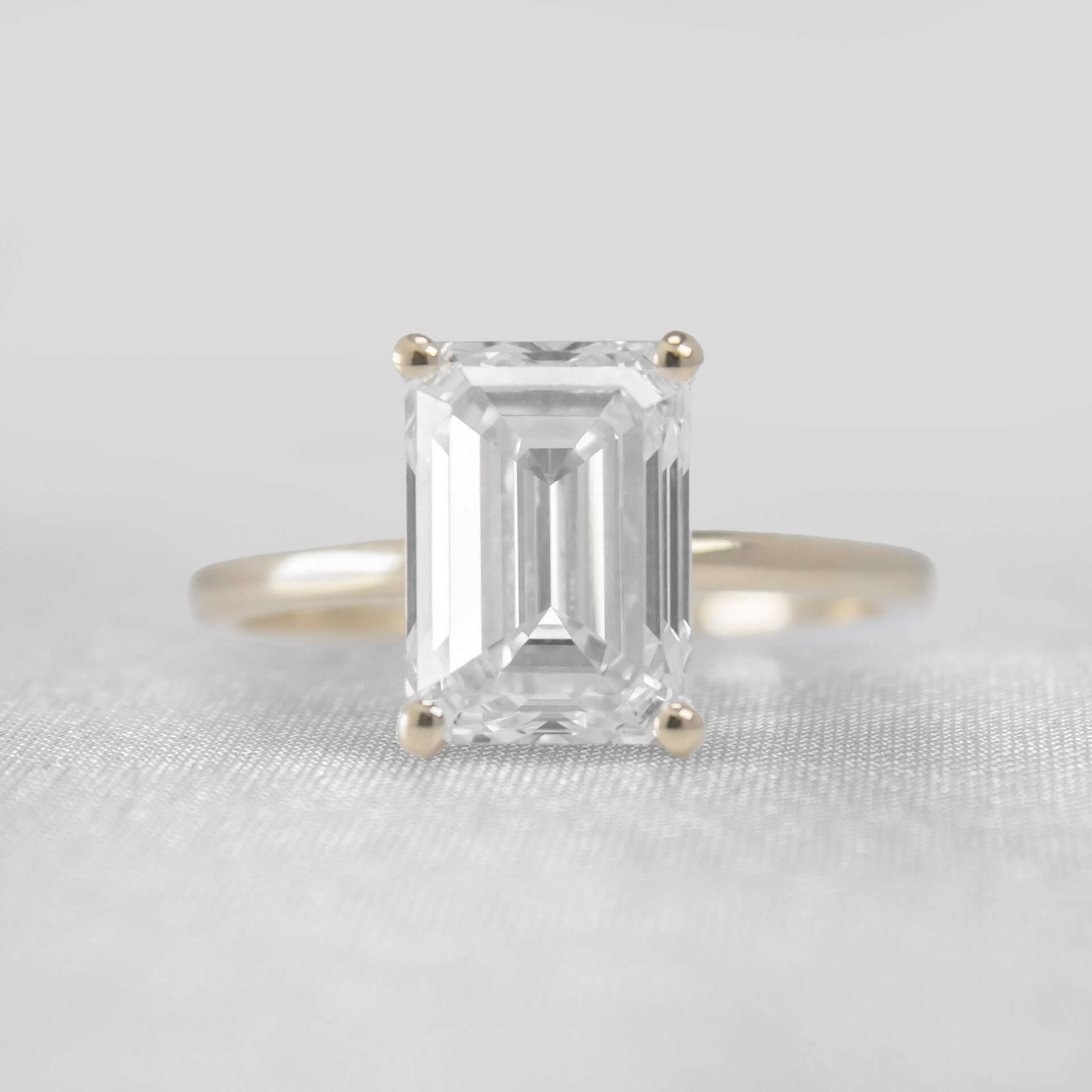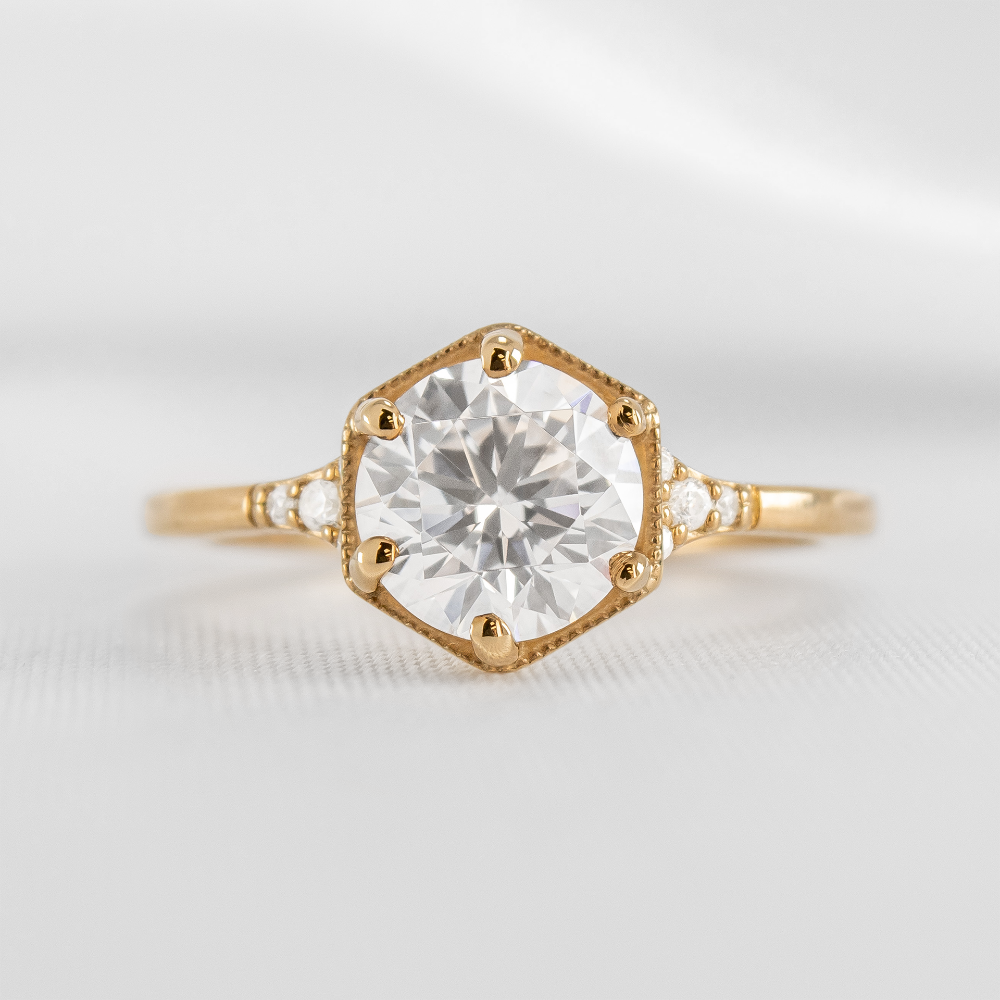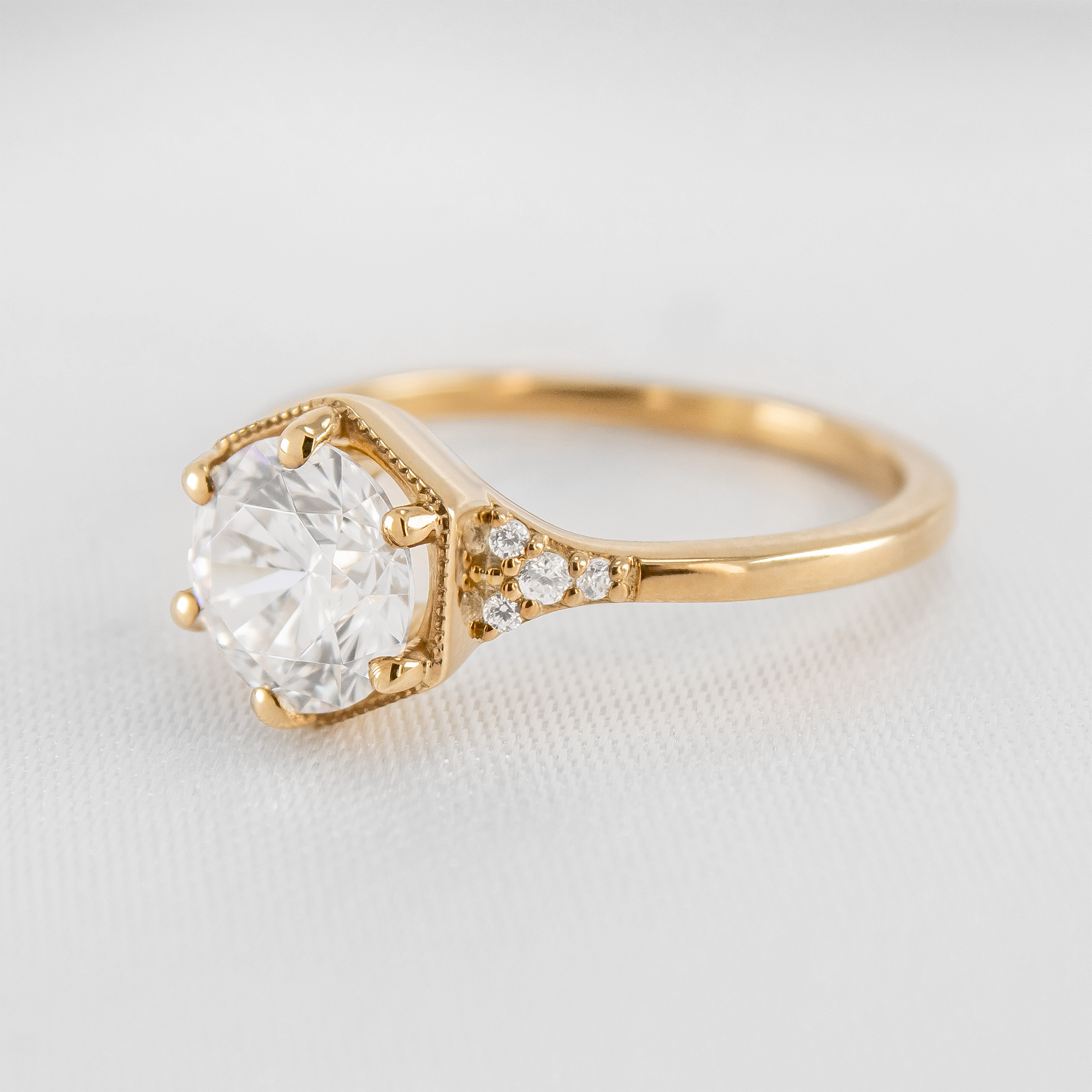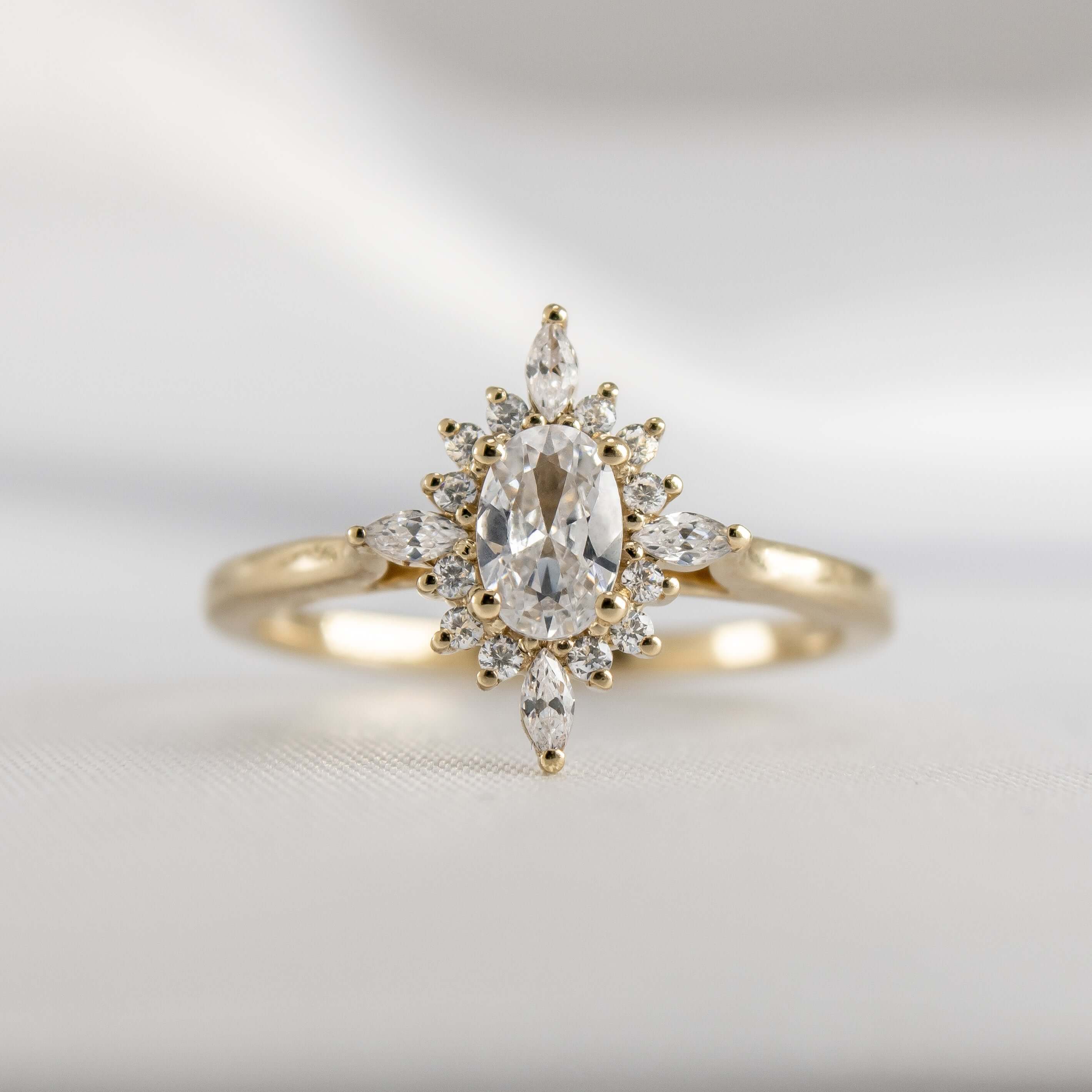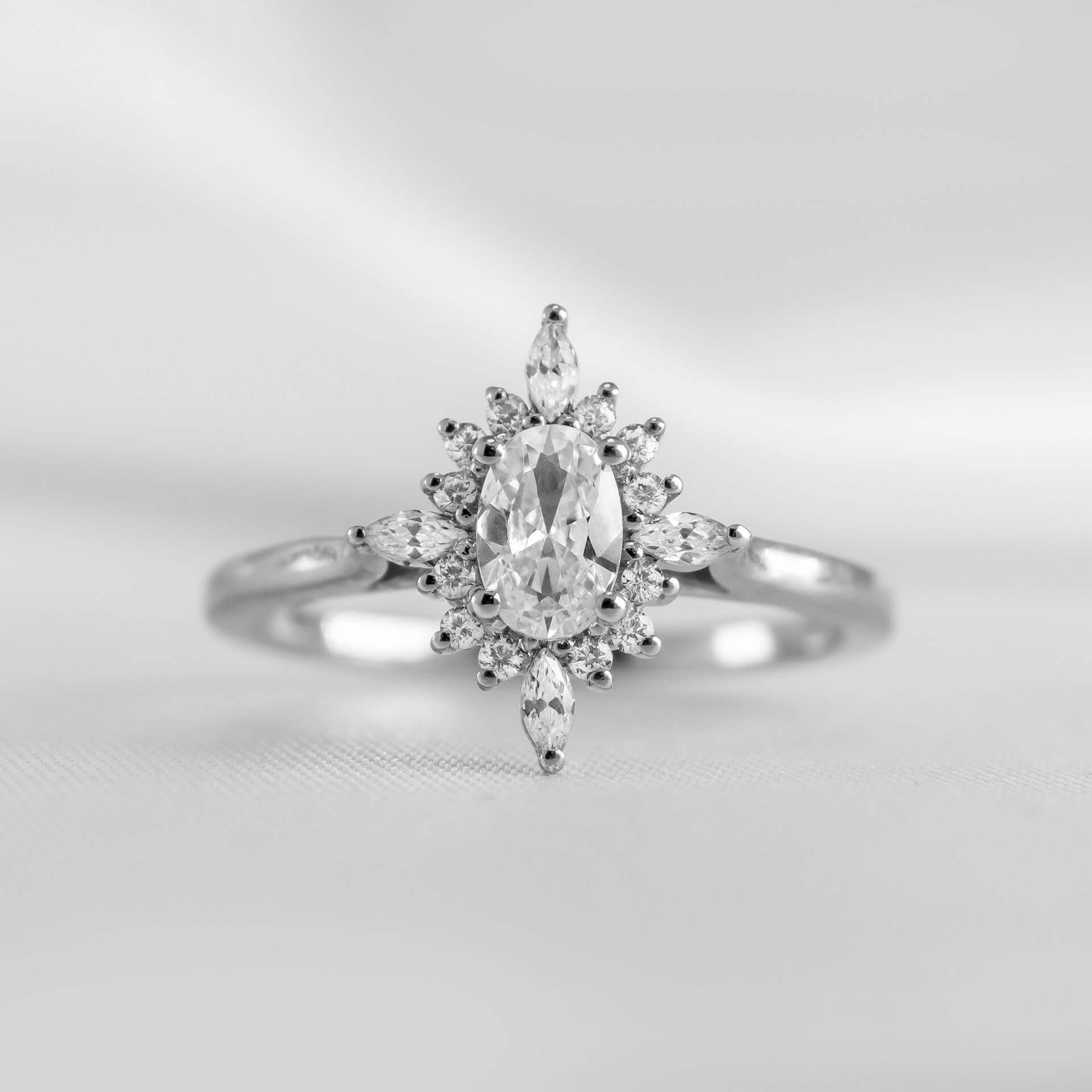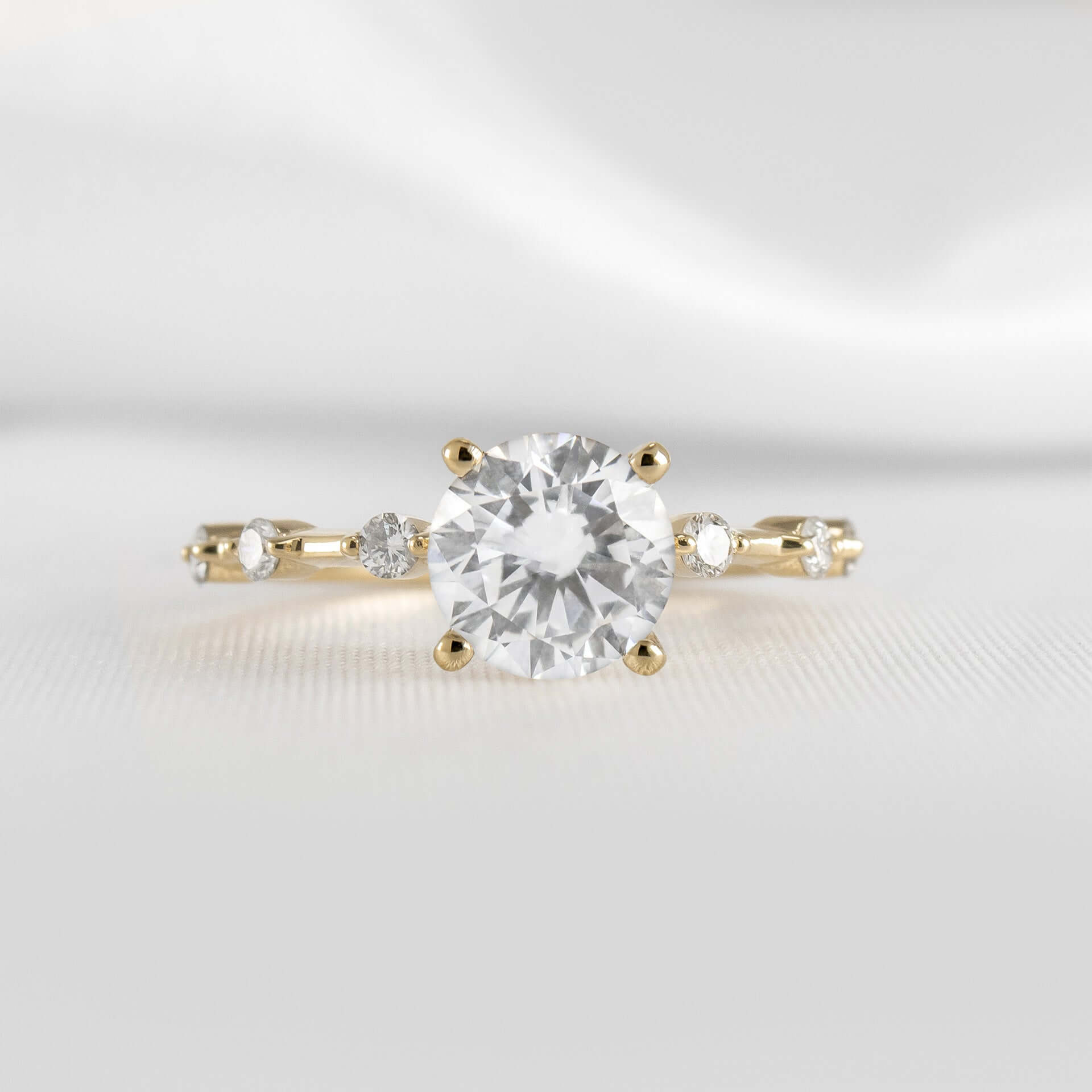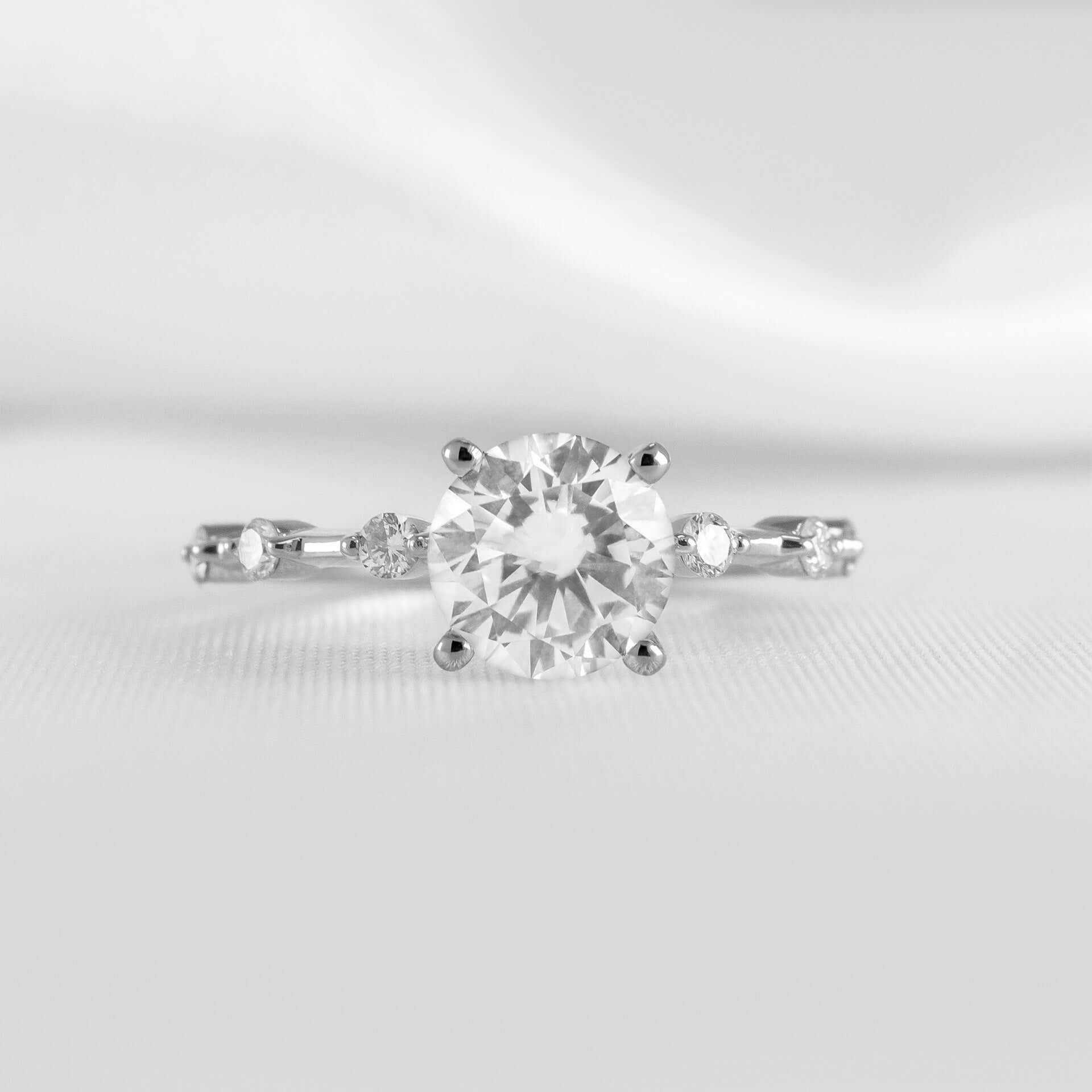Ethical and Sustainable Engagement Rings
Important to all of Us
We understand the significance of designing an ethical engagement ring, which is equally crucial to us as we strive to contribute to a responsible, advancing, and ethical jewelry sector. Our commitment to making your diamond ring an ethical piece to cherish is demonstrated through our ethical approach and sourcing of ethical diamonds. Find out more about our commitment to creating sustainable engagement rings and acquiring ethical diamonds.




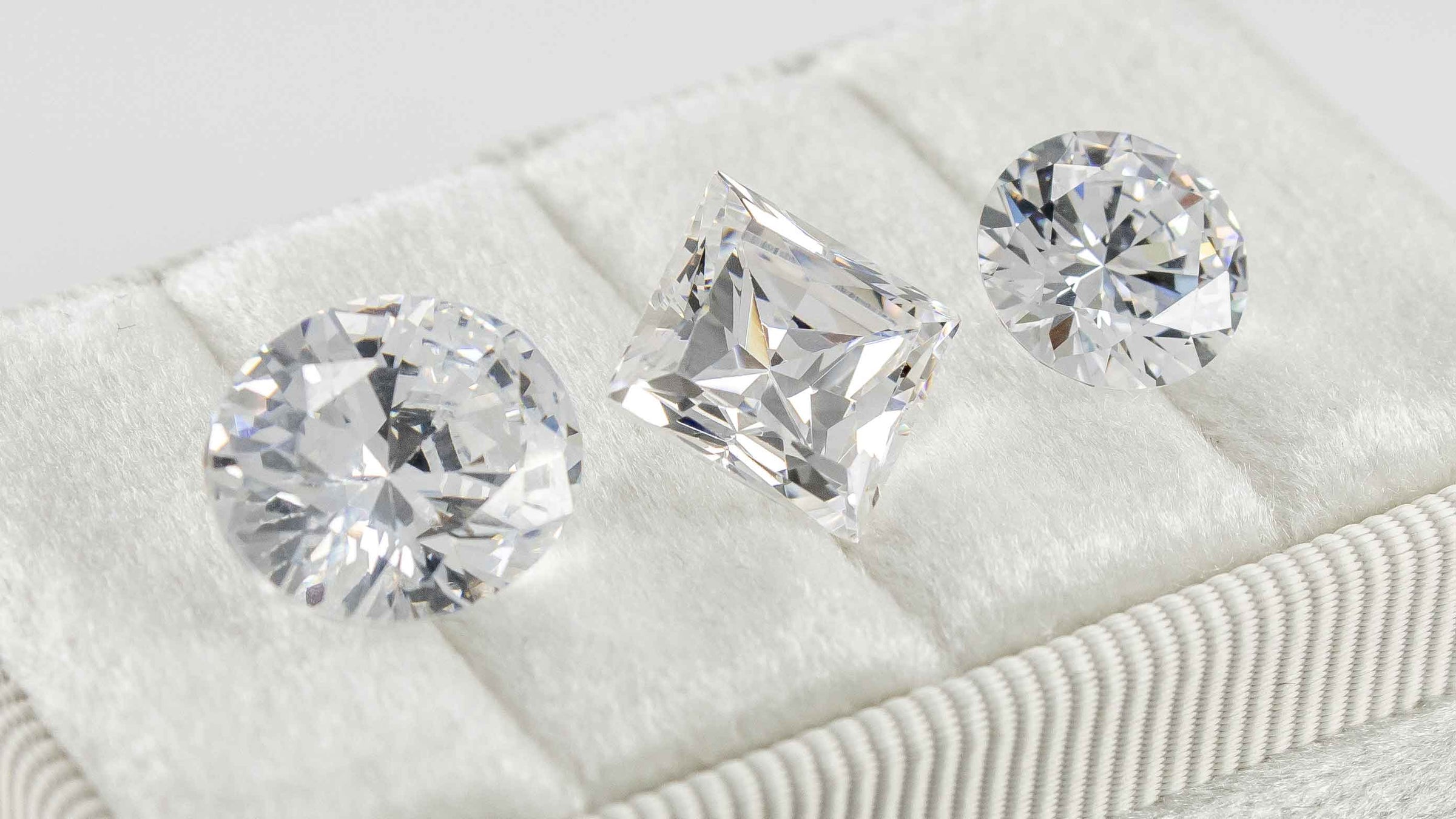




)
)


